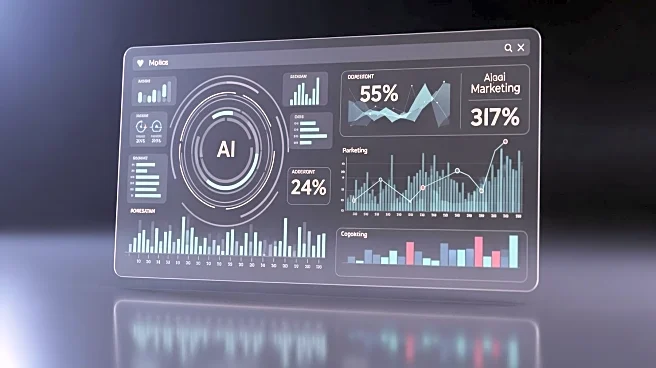What's Happening?
The marketing industry is undergoing significant changes as artificial intelligence (AI) becomes more integrated into marketing strategies. While some fear that AI could disrupt traditional marketing roles, industry leaders argue that it is the marketers
themselves who might inadvertently undermine the field by not adapting to new technologies. The next generation of marketing and agency leaders is actively redefining AI's role, focusing on how it can enhance creativity and efficiency rather than replace human input.
Why It's Important?
The integration of AI into marketing represents a pivotal shift in how brands engage with consumers. This evolution could lead to more personalized and efficient marketing strategies, potentially increasing return on investment for companies. However, it also poses challenges for marketers who must adapt to new tools and methodologies. The success of AI in marketing will depend on how well industry professionals can leverage these technologies to complement human creativity and decision-making.
What's Next?
As AI continues to evolve, marketers will need to develop new skills and strategies to effectively utilize these technologies. This may involve increased investment in training and development programs to bridge the skills gap. Companies that successfully integrate AI into their marketing efforts could gain a competitive edge, while those that fail to adapt may struggle to keep pace with industry changes.
Beyond the Headlines
The ethical implications of AI in marketing are also a topic of discussion, particularly concerning data privacy and consumer trust. As AI-driven marketing becomes more prevalent, companies will need to navigate these ethical considerations carefully to maintain consumer confidence and comply with regulatory standards.
















